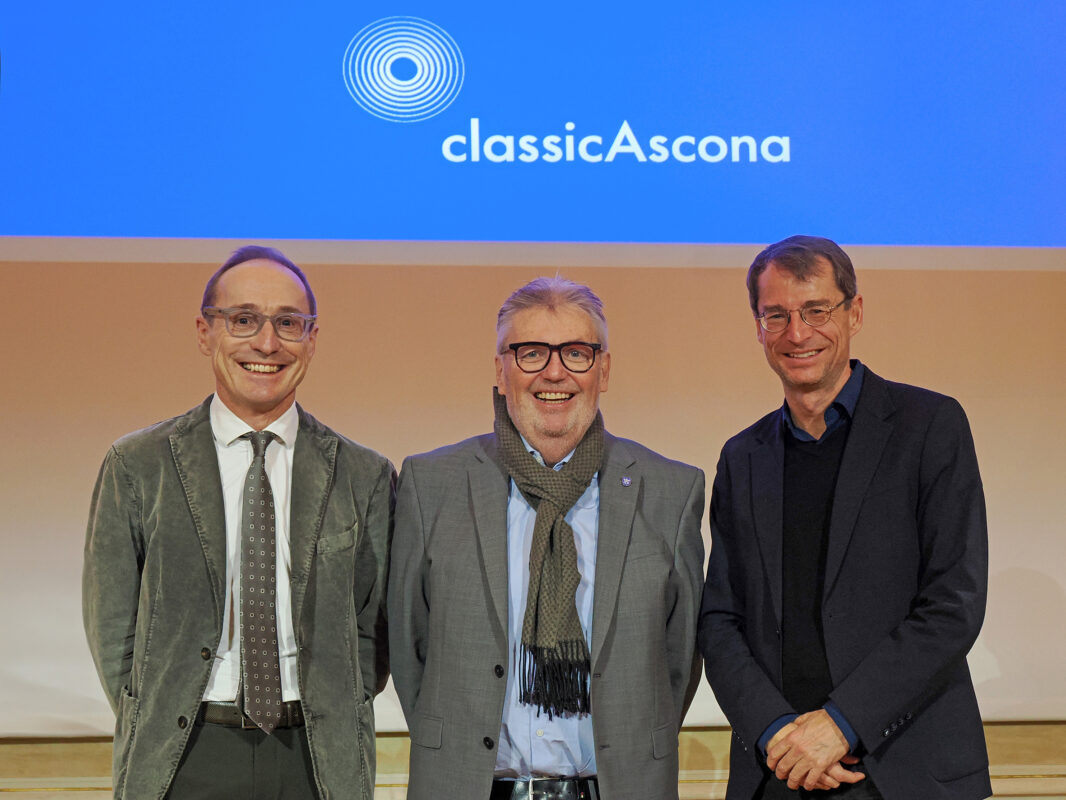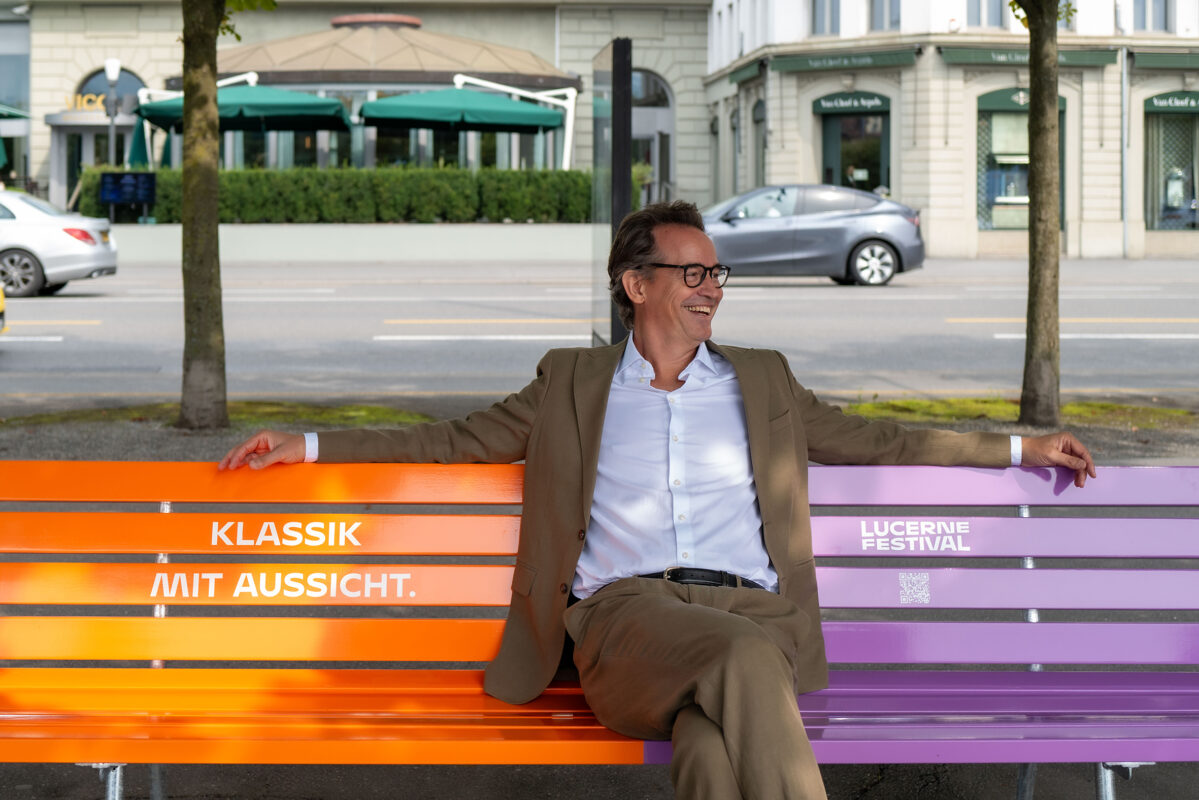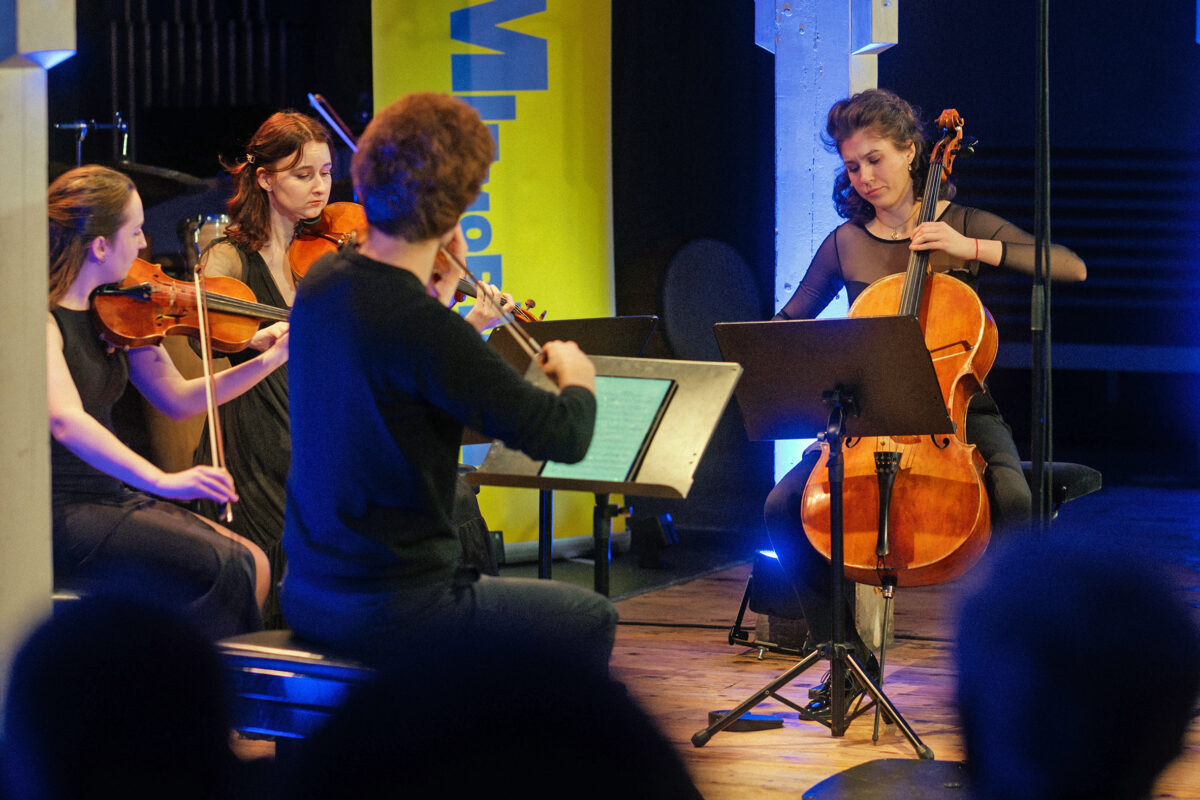Open End in Lucerne
The farewell to Artistic Director Michael Haefliger marked the end of an era at the Lucerne Festival.
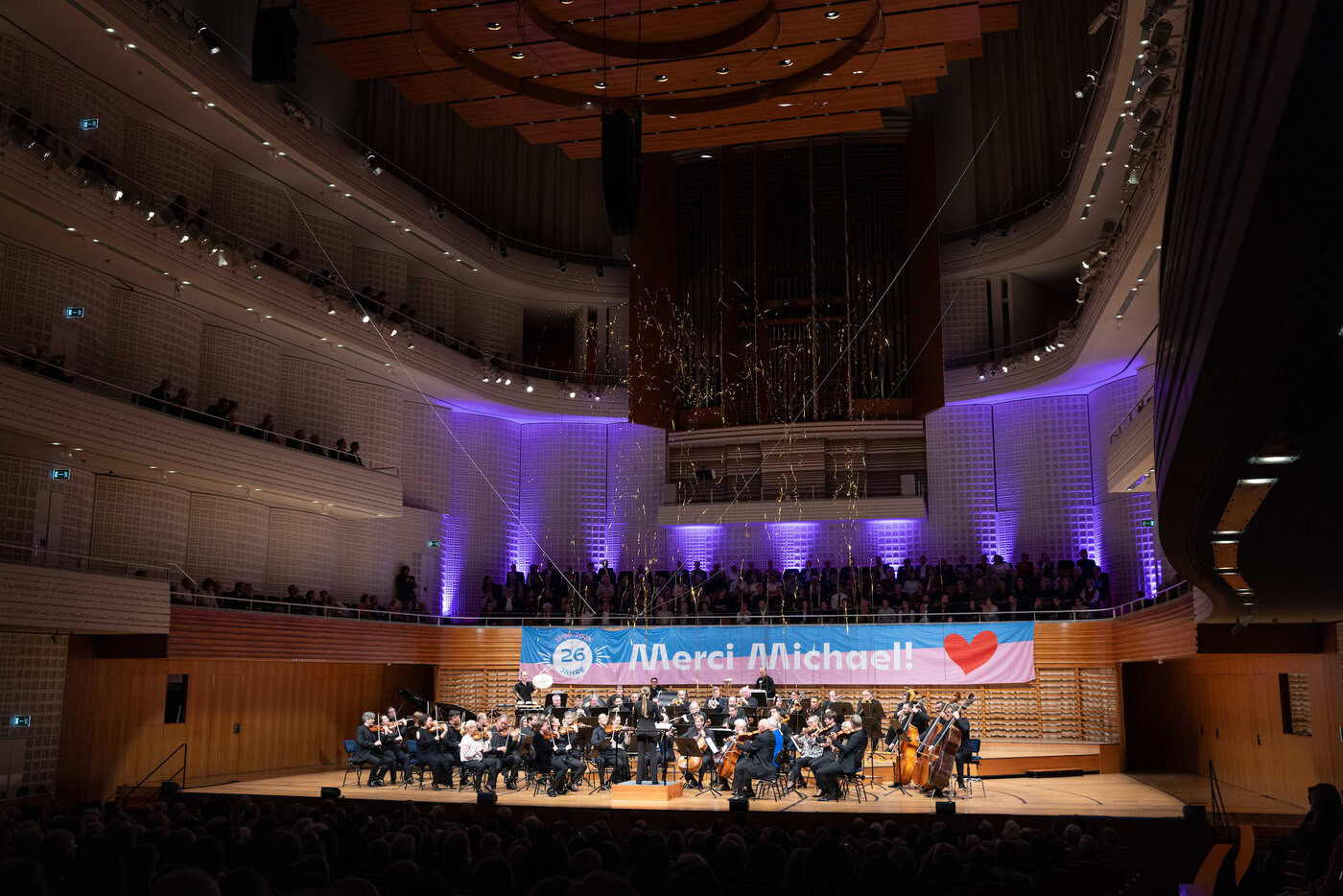
"Merci Michael!" is written on the large banner that is unfurled at the end of the farewell party for Michael Haefliger at the KKL, entitled "Les Adieux". The Lucerne Festival Orchestra, which he co-founded with Claudio Abbado in 2003, with Johanna Malangré on the podium, then undertakes a musical journey through the life of the outgoing artistic director, who led the Lucerne Festival for 26 years, as a farewell gift. There may Notation 1 by Pierre Boulez, with whom he founded the Lucerne Festival Academy for contemporary music in 2004, as well as the beginning and end of Bruckner's Seventh and Mahler's Third - Abbado's finest moments in the Festival's history. The Swiss songs Z'Basel an mym Rhy and From Lucerne to Wäggis are played in a symphonic high-gloss sound (arrangement: Simon Nathan), as is the FC Bayern anthem Always forwards. After her brilliant laudatory speech, Graziella Contratto had already translated the letters of "Michael Merci" into syllables and sung them together with the audience.
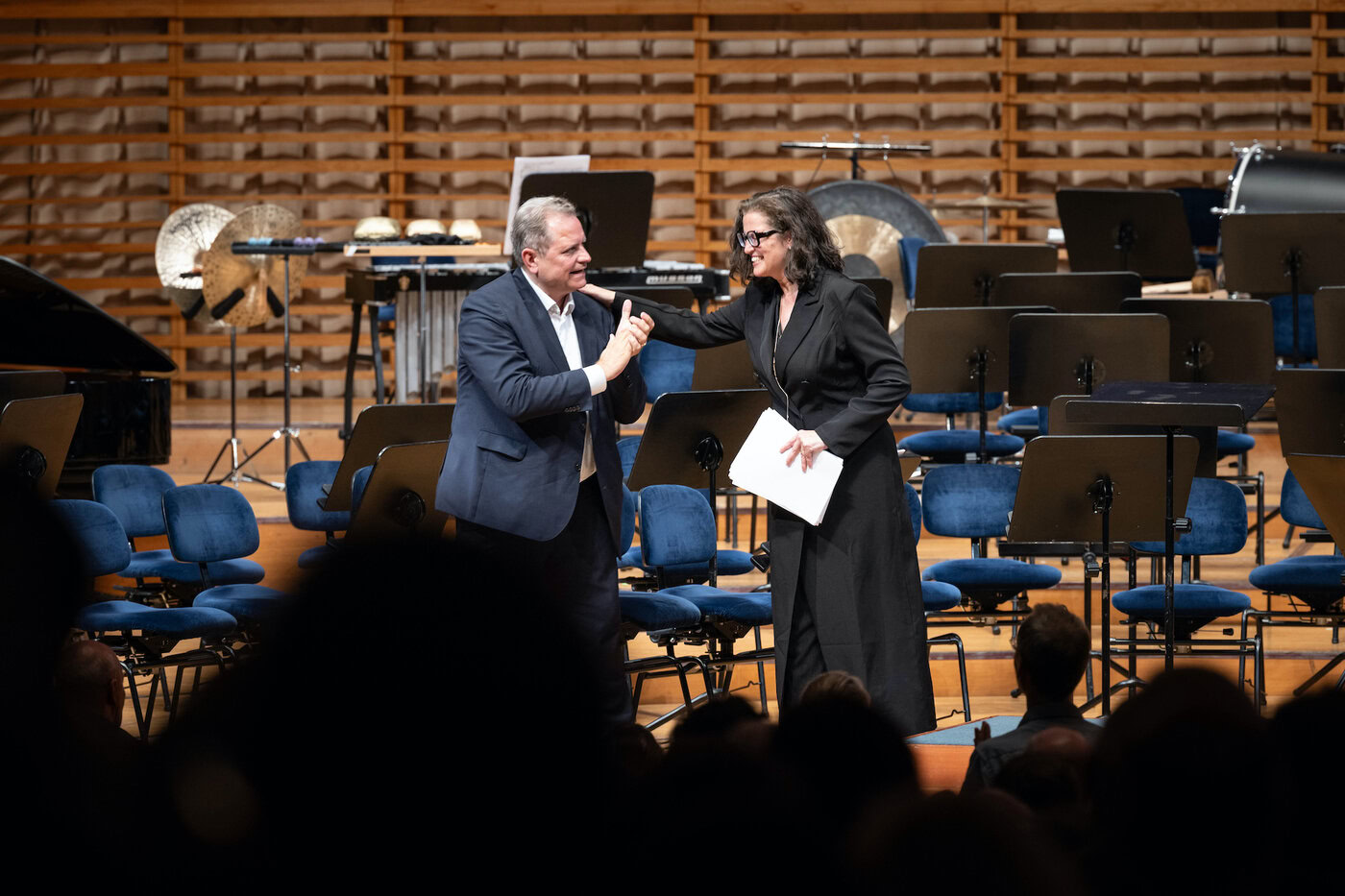
Inspired by Ludwig van Beethoven's StormThe Swiss conductor and producer Michael Haefliger compares the Lucerne Sonata, which Igor Levit has placed somewhere between immersion and intoxication, with the magician Prospero from Shakespeare's drama of the same name. He has turned the Lucerne Festival into a magical island and, with his magic slogan "young, excellent, innovative", has not only attracted sponsors (92 percent self-financing), but has also brought a breath of fresh air artistically with over 400 world premieres and new formats. Festival mottos such as "Diversity", "Diva" and "Crazy", which he has literally thought through, have anchored the festival in the present day. "Open End" is the motto for 2025 - the handover to his successor Sebastian Nordmann is already being prepared.
The familiar again and again
An open end is also perceptible in the concert program of the Munich Philharmonic Orchestra in the last days of the festival, which will be conducted by Lahav Shani in Franz Schubert's Unfinished develop a warm sound. The disinvitation of the orchestra and its designated Israeli chief conductor by the Flanders Festival in Ghent was met with much criticism in the cultural scene, for Igor Levit a case of "classical, disgusting anti-Semitism and cowardice". These tensions are not to be felt in Lucerne. Lahav Shani conducts without baton and with flowing movements, which in Ludwig van Beethoven's Violin Concerto sometimes lead to minor inaccuracies in the interplay with the sovereign Lisa Batiashvili. The solo cadenzas by Alfred Schnittke give the much-heard work a new color.
Richard Wagner's concertante Siegfried on period instruments under Kent Nagano, a project of the Dresden Music Festival, combines the familiar with the new. The orchestral part is given a rarely heard transparency that allows the singers to act more freely and without any forcing. Only in the third act does the orchestra, made up of the Dresden Festival Orchestra and Concerto Köln, lose a little of the quality of its interplay and intonation. In the well-balanced ensemble of soloists, Thomas Blondelle as the almost lyrical Siegfried, Derek Welton, who sings from memory, as the supple, supple Wanderer, Asa Jäger (Brünnhilde) with her wide-ranging soprano and Hanno Müller-Brachmann as the pithy Fafner (with bell) set special accents.
26 years in one afternoon
Michael Haefliger's innovative spirit can also be seen. A purple UFO has landed on the Lido meadow near the Swiss Museum of Transport. Haefliger developed the Ark Nova, an inflatable concert hall, together with artist Anish Kapoor and architect Arata Isozaki for Fukushima in 2013 to provide the deeply unsettled people of Japan with a safe space for music in the wake of the nuclear disaster. This "sound sculpture" can now be experienced for the first and last time in Lucerne. The ten-day, musically diverse program in the Ark Nova is aimed at a wide audience; 30 of the 35 concerts are sold out. At the two concerts attended, however, the acoustically spongy, traditionally seated plastic shell makes you sweat. The fan does not provide cooling, but merely keeps the shell in shape. The experimental performance by Charlotte Hug (viola and voice) and Lucas Niggli (drums) has lengths and overly strong dynamic peaks.
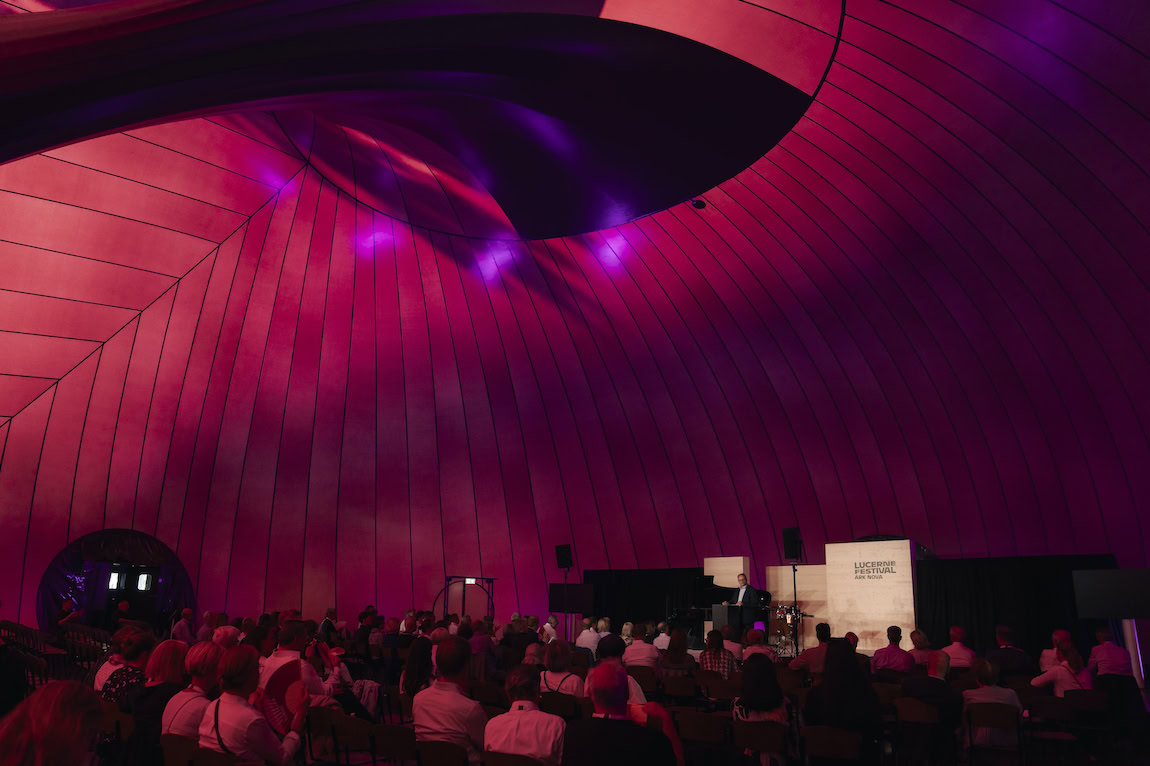
Winnie Huang's digital-vocal show (visuals: Andreas Huck and Roland Nebe), which creates humorous virtuosity from chattering teeth and winking eyes, is far more original during Michael Haefliger's four-and-a-half-hour farewell. The jam-packed afternoon seems like a distillation of his work, which, however, loses concentration due to its length. Riccardo Chailly, who celebrated Italian overtures and opera choruses the day before with the orchestra and choir of La Scala in Milan, is back with a Rossini overture. There will be new music with Stefan Dohr's world premiere of Jüri Reinvere's Night picture with blue stars for horn solo, Dieter Ammans Violation (great on solo cello: Maximilian Hornung) and Pierre Boulez' Initial for seven brass instruments (ensemble of the Lucerne Festival Contemporary Orchestra). Members of the West-Eastern Divan Ensemble play Fanny Mendelssohn's String Quartet in E flat major with strange glissandi in the first violin. Patricia Kopatchinskaja and Sol Gabetta, who both won the Credit Suisse Young Artist Award in Lucerne at a young age, bring a new dimension to the concert with the brilliantly played Valse bavaroise and Toccatina all'inglese two works by Jörg Widmann, who will take over the Lucerne Festival Academy in 2026 as Wolfgang Rihm's successor. Open End in Lucerne ...






